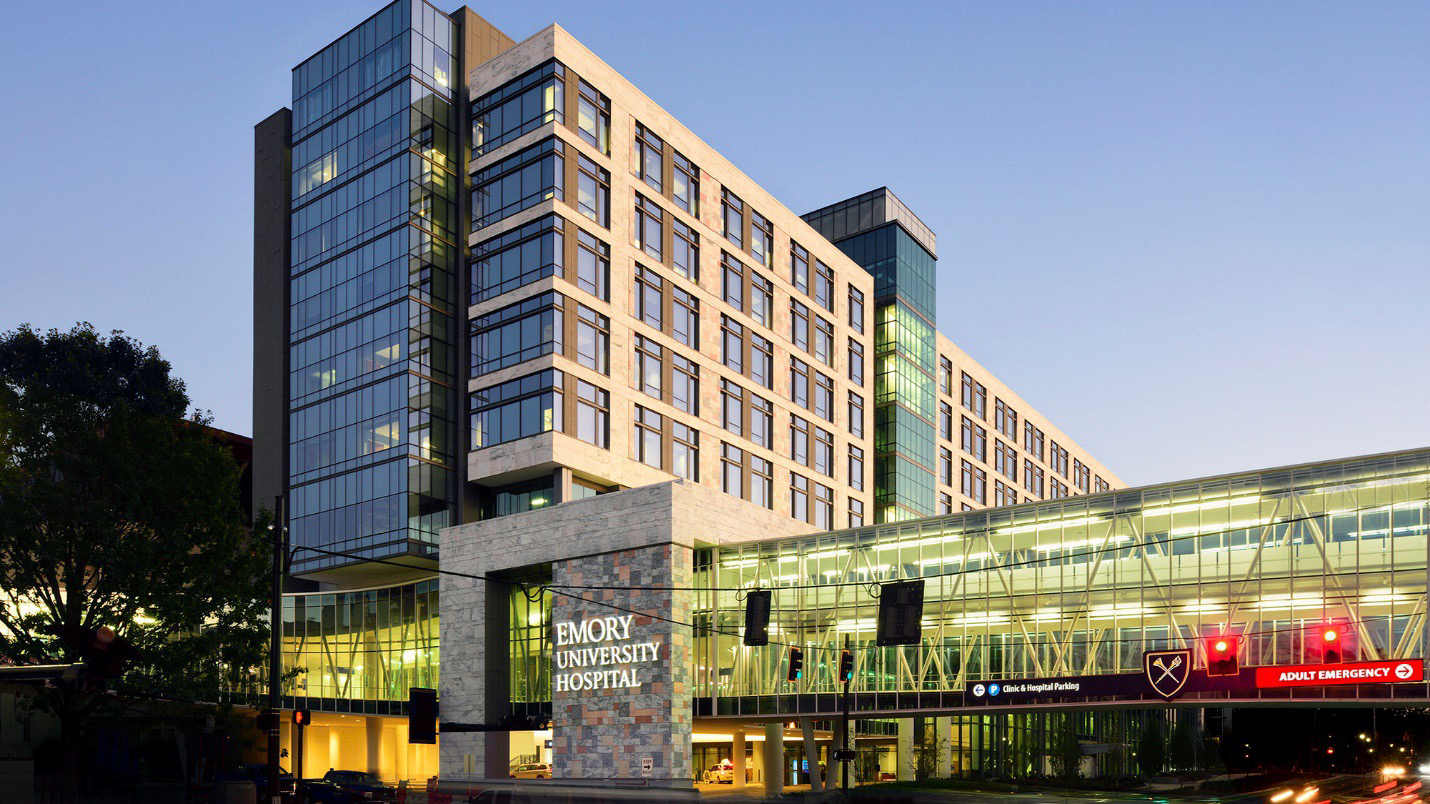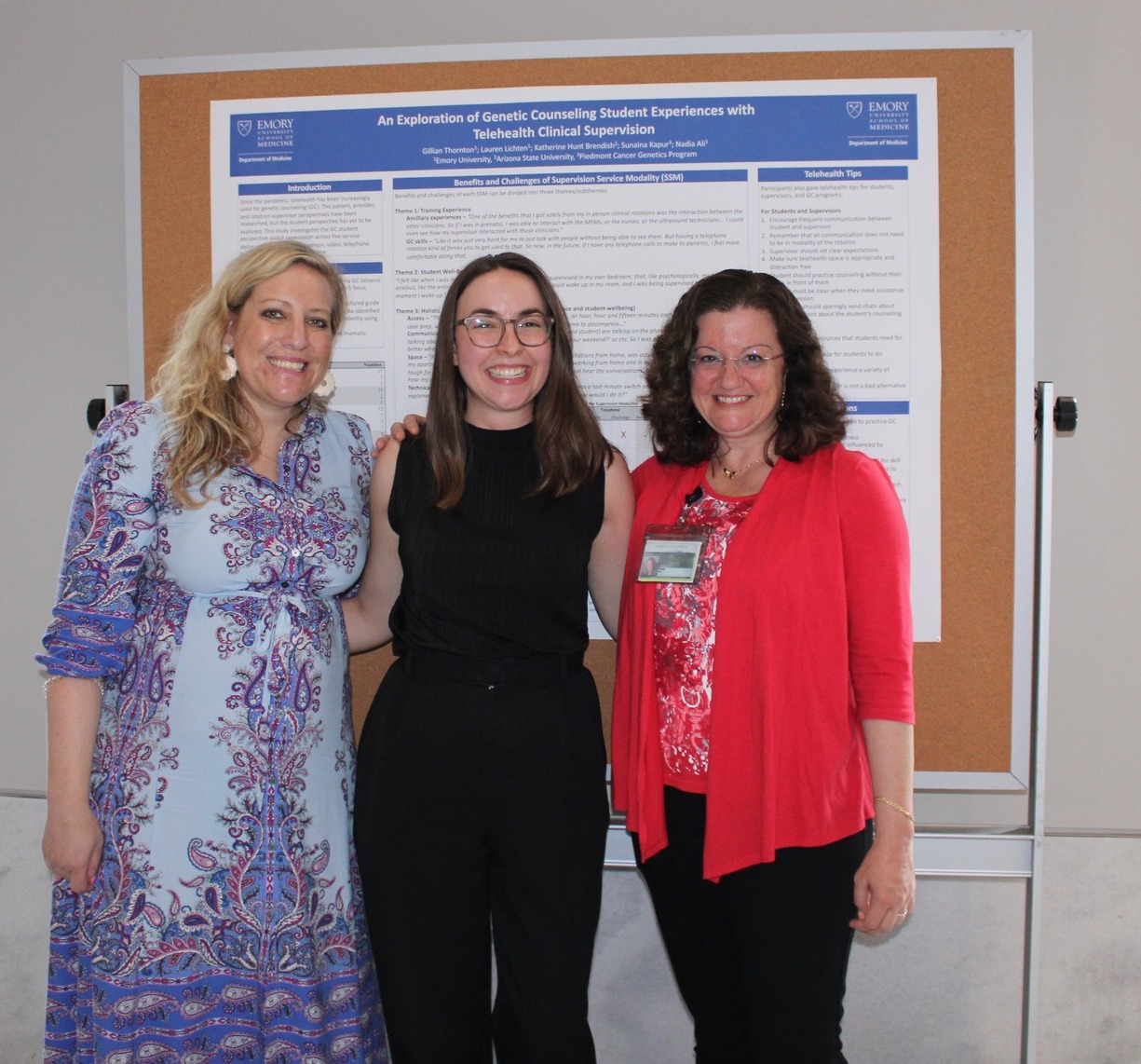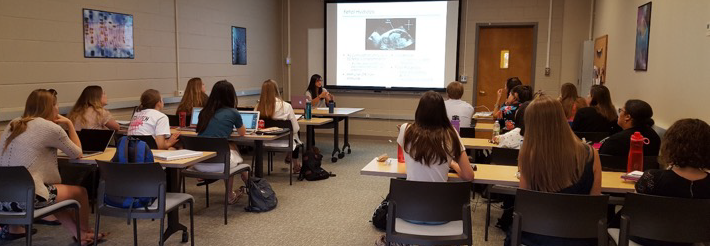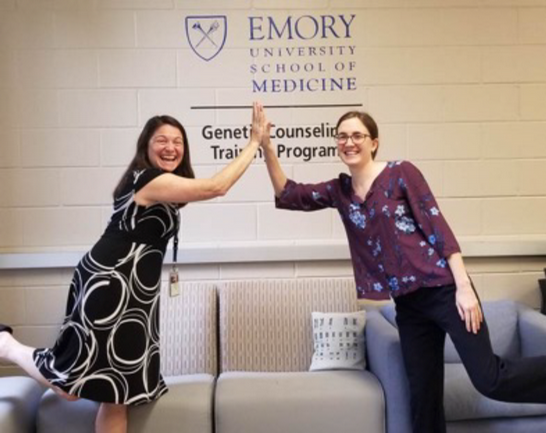What makes our program unique?

Location, location, location!
• As the only genetic counseling training program in the state of Georgia, students have unparalleled access to training resources.
• We are part of the Emory University Department of Human Genetics, which includes a full-fledged basic genetic research program, a comprehensive clinical genetics division, and a genetics clinical trials center. Students participate in departmental educational opportunities, such as grand rounds and case conferences.
• We are one of five allied health programs in the School of Medicine, which provides interprofessional opportunities such as IPE-ACTS (Interprofessional Education - Achieving Collaborative Team Solutions). Second-year genetic counseling students are actively involved in providing genetics education to medical and physician assistant students.
• Rotation opportunities at Emory Healthcare, Children’s Healthcare of Atlanta, Winship Cancer Institute, Grady Health System, as well as many other clinical partners in the greater Atlanta area. Students have opportunities to engage with patients and providers from a variety of backgrounds throughout their training.

Abundant Experiential Learning Opportunities
- For the entirety of the program, students participate in a focus internship. Along with a mentor, they develop and execute a research project and can be involved a variety of activities in their mentor's specialty area. Many students have published their findings in peer-reviewed journals and/or shared them at regional, national, and/or international conferences.
- Clinical observations occur in the first semester and clinical rotations begin in the Spring semester of first year. Students complete a total of ten rotations, including four specialty rotations and a variant interpretation intensive. On average, students are involved in two to three times the number of cases required by the Accreditation Council for Genetic Counseling, are exposed to multiple service delivery models, and have the opportunity to explore non-patient facing roles for genetic counselors in public health, industry, and/or patient advocacy. Some students choose to do their summer rotations outside of the greater Atlanta area.
- Students engage with patients outside of the healthcare system. First year students are matched with a family impacted by a genetic condition as part of an initiative called Project Home, complete a cultural exposure project where they engage with a community outside of their own, and spend one day at Just People. In their classes, students often have the opportunity to learn from invited patient speakers.
- First year students work with simulated patients (SPs) in the Clinical Skills Center, which is a safe, controlled environment for learning new skills.
- Students participate in and often hold leadership positions in campus organizations such as the Genetic Counseling Student Association, Allied Health Council, and the Emory National Organization of Rare Disorders “Students for Rare” Chapter.

Extensive Didactic Curriculum
The majority of courses are tailored to genetic counseling students. Notable courses include:
-
Professional Development (Theory & Practice III)
-
Public Health Genomics
-
Epidemiology and Biostatistics
-
Biomedical Ethics
-
Boards Preparation (Seminar IV)
Students take at least one graduate level elective course in any school at Emory such as the Neil Hodgson School of Nursing, Candler School of Theology, School of Law, Roberto C. Goizuetta Business School, or the Rollins School of Public Health.

Network of Student Support
- Academic advising is provided by a member of the program leadership team.
- All students are assigned a 2nd year “buddy.”
- For the focus project, students all have a research mentor and committee. In addition, all students are assigned a focus advisor who is a member of the primary faculty for additional support and guidance. Students have access to experts in qualitative research and statistics.
- Academic and well-being support through the Center for Holistic Student Success
- Resources and support for students who have disabilities through the Department of Accessibility Services
- Comprehensive support for international students through the International Student and Scholar Services Office
- Access to mental health support through Counseling and Psychological Services
- Opportunity to participate in Cognitively-Based Compassion Training , a research-based approach to training and sustaining compassion.


